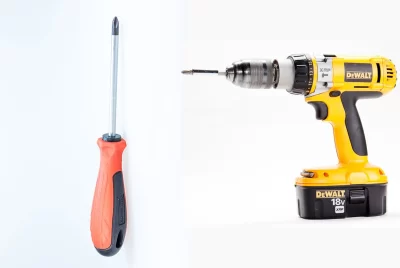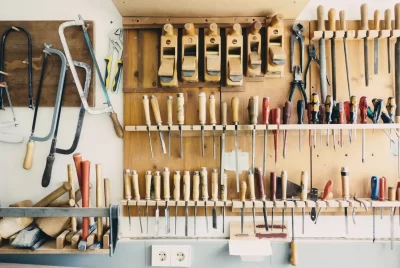The Top 5 Best Wood Splitting Tools For Your Toolshed
Introduction
As someone who takes pride in their DIY skills and loves the warmth of a crackling fire, having the right wood splitting tool is a game-changer. Not only does it save you money, but it also provides the satisfaction of self-sufficiency. Join me as I guide you through the top 5 wood splitting tools that are essential for any garage setup.
Why Having the Right Wood Splitting Tools Matters
Splitting wood at home isn’t just a chore; it’s a gratifying experience. But the key to making it hassle-free and efficient lies in the tools you choose. Quality tools not only ensure your safety but also make the entire process smoother.
Factors to Consider When Choosing Wood Splitting Tools
Before we dive into the top 5 list, let’s talk about the factors you should consider when selecting wood splitting tools. Different types of wood have different textures and densities. Understanding the specifications of each tool is crucial to ensure compatibility with the wood you’re working with.
Top 5 Best Wood Splitting Tools
1. Splitting Mauls

A splitting maul, also known as a blockbuster, is a heavy-duty tool designed to split wood along its grain. Its hefty head and wedge-shaped blade make it ideal for tackling larger logs with ease. Look for a maul with a comfortable handle and a well-balanced design for maximum efficiency.
2. Log Wood Splitters

If you’re dealing with large quantities of wood, a log splitter is your best friend. Available in electric, gas, and manual variants, these machines make splitting a breeze. Electric log splitters are quieter and more eco-friendly, while gas-powered ones are more powerful for heavy-duty tasks. Manual options are great for smaller projects.
3. Wedge and Sledgehammer

For the purists who appreciate a manual approach, there’s nothing like the classic wedge and sledgehammer combo. This method requires precision and technique. By strategically placing a wedge and using a sledgehammer, you can split even the most stubborn logs.
4. Axe or Hatchet

When it comes to versatility and portability, an axe or hatchet takes the lead. Perfect for smaller logs and kindling, a sharp and well-balanced axe can make quick work of your woodpile. Keep it well-maintained to ensure clean and efficient cuts.
5. Electric Chainsaw

For those who value efficiency and speed, electric chainsaws are a fantastic option. They’re not only great for sawing logs but also for splitting them. With proper maintenance, an electric chainsaw can be a reliable addition to your wood-splitting arsenal.
Safety Gear and Tips
Before you embark on your wood splitting journey, it’s crucial to prioritize safety above all else. Here are some detailed safety tips and essential gear recommendations to ensure your wood splitting experience remains hazard-free.
Essential Safety Gear
- Eye Protection: Always wear safety goggles or glasses to protect your eyes from flying wood chips and debris.
- Gloves: Sturdy gloves provide a secure grip and shield your hands from splinters, sharp edges, and potential blisters.
- Footwear: Invest in steel-toed boots or footwear with reinforced toes to protect your feet from falling logs and tools.
- Ear Protection: If you’re using noisy machinery like gas-powered log splitters, wear earmuffs or earplugs to prevent hearing damage.
- Appropriate Clothing: Opt for long-sleeved shirts and pants to shield your skin from scratches and cuts. Avoid loose clothing that could get caught in moving parts.
Safety Tips
- Clear Workspace: Ensure your work area is free from clutter and obstacles that could cause trips or falls during the wood splitting process.
- Stable Surface: Set up your tools on a flat and stable surface to prevent accidental tipping or slipping.
- Proper Technique: Whether you’re using a tool or a machine, follow the recommended technique for safe and effective wood splitting. Avoid awkward postures that could lead to strain or injury.
- Focus and Rest: Stay focused on the task at hand. Fatigue can lead to accidents. Take regular breaks to rest and recharge.
- No Distractions: Avoid distractions like phone calls or conversations while operating tools. Concentration is essential to prevent accidents.
- Keep Others at a Safe Distance: Ensure that bystanders, especially children and pets, are at a safe distance to avoid any accidents caused by flying wood chips or debris.
Maintenance and Care
Taking care of your wood splitting tools not only prolongs their lifespan but also ensures their efficiency and safety. Follow these maintenance tips to keep your tools in top-notch condition.
Regular Cleaning
- Remove Debris: After each use, clean off wood chips, dirt, and sap from the tool’s blades and handles.
- Oil the Metal Parts: Apply a thin coat of oil to metal parts to prevent rust. This is especially important for tools that come in contact with moisture.
- Check Handles: Inspect handles for cracks, splinters, or signs of wear. Sand down rough areas to prevent blisters.
Sharpening
- Keep Blades Sharp: Regularly sharpen the blades of tools like axes and mauls to ensure clean and efficient cuts. Dull blades can lead to more effort and potential accidents.
- Use the Right Tools: Use appropriate sharpening tools such as files, sharpening stones or tool grinders. Follow proper sharpening techniques to maintain the tool’s edge.
Storage
- Dry Storage: Store your wood splitting tools in a dry place, away from moisture and extreme temperatures. A tool shed or garage with proper ventilation is ideal.
- Hang Tools: If possible, hang tools on a wall rack or pegboard to prevent them from coming into contact with the ground or other tools, which can lead to damage.
- Protect Edges: Consider using blade guards or blade covers to protect the sharp edges of your tools while they’re in storage.
Conclusion
Congratulations! You’re now equipped with the knowledge to choose the best wood splitting tools for your garage. Whether you opt for the traditional approach or the modern convenience of machines, remember that the right tools not only make the job easier but also more enjoyable. Happy wood splitting!
Frequently Asked Questions
Q1. Can I use a regular axe for splitting wood? Absolutely! A sharp and well-balanced axe is great for smaller wood splitting tasks.
Q2. Are electric log splitters noisy? Electric log splitters are quieter compared to gas-powered ones, making them a more peaceful option.
Q4. How do I maintain my wood splitting tools? Regularly clean and sharpen your tools. Store them in a dry place to prevent rust and ensure longevity.
Q3.
Q5. What’s the difference between an axe/hatchet and splitting mauls? An axe or hatchet is great for smaller logs, while splitting mauls are designed for larger logs due to their heavy head and wedge-shaped blade.
Summary
Starting with the robust splitting mauls, we’ll explore their benefits and key features. For heavy-duty tasks, log splitters emerge as a game-changer, available in various power options. The traditional method of using a wedge and sledgehammer is also covered, highlighting safety and technique. From the versatile axe or hatchet to the convenience of electric chainsaws, you’ll find insights into their unique advantages.
By embracing the right tools and techniques, you’ll transform wood splitting from a chore into a gratifying experience. With a conversational tone and expert advice, this guide equips you for success in your wood-splitting endeavors. Happy wood splitting!





Comments are closed.